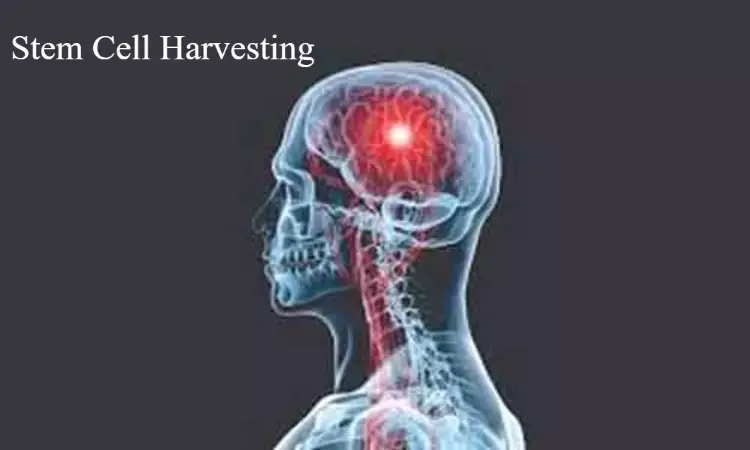- Home
- Medical news & Guidelines
- Anesthesiology
- Cardiology and CTVS
- Critical Care
- Dentistry
- Dermatology
- Diabetes and Endocrinology
- ENT
- Gastroenterology
- Medicine
- Nephrology
- Neurology
- Obstretics-Gynaecology
- Oncology
- Ophthalmology
- Orthopaedics
- Pediatrics-Neonatology
- Psychiatry
- Pulmonology
- Radiology
- Surgery
- Urology
- Laboratory Medicine
- Diet
- Nursing
- Paramedical
- Physiotherapy
- Health news
- Fact Check
- Bone Health Fact Check
- Brain Health Fact Check
- Cancer Related Fact Check
- Child Care Fact Check
- Dental and oral health fact check
- Diabetes and metabolic health fact check
- Diet and Nutrition Fact Check
- Eye and ENT Care Fact Check
- Fitness fact check
- Gut health fact check
- Heart health fact check
- Kidney health fact check
- Medical education fact check
- Men's health fact check
- Respiratory fact check
- Skin and hair care fact check
- Vaccine and Immunization fact check
- Women's health fact check
- AYUSH
- State News
- Andaman and Nicobar Islands
- Andhra Pradesh
- Arunachal Pradesh
- Assam
- Bihar
- Chandigarh
- Chattisgarh
- Dadra and Nagar Haveli
- Daman and Diu
- Delhi
- Goa
- Gujarat
- Haryana
- Himachal Pradesh
- Jammu & Kashmir
- Jharkhand
- Karnataka
- Kerala
- Ladakh
- Lakshadweep
- Madhya Pradesh
- Maharashtra
- Manipur
- Meghalaya
- Mizoram
- Nagaland
- Odisha
- Puducherry
- Punjab
- Rajasthan
- Sikkim
- Tamil Nadu
- Telangana
- Tripura
- Uttar Pradesh
- Uttrakhand
- West Bengal
- Medical Education
- Industry
Vadodara's SSG Hospital to start Stem cell harvesting

Vadodara: Other than AIIMS, New Delhi, the State-run SSG Hospital in Vadodara has become the second state-run government facility in the country to get registered for stem cell harvesting. The facility has recently secured a license for rare stem cell harvesting.
The blood centre of SSG Hospital is the biggest facility in central Gujarat. It has secured the approval of the Central Licensing Approval Authority (CLAA) to collect stem cells. This is a milestone in making bone marrow transplants less expensive and more affordable for patients in near future.
SSG Hospital's medical superintendent Dr Ranjan Aiyer told Times of India," It is a very essential and a firm step towards establishing a fully independent bone marrow transplant unit at our hospital." The hospital has secured an apheresis license. It is a medical technique by which a substance is removed from the body. Such licensed blood centres are either available at private hospitals or hospitals running on public-private-partnership mode. However, the treatment is quite expensive.
The hospital has already treated a 71-year-old female patient suffering from multiple myeloma (cancer that forms in a type of white blood cell called a plasma cell) on Tuesday by conducting its third autologous stem cell transplant on her. At private hospitals, such stem cell transplants cost several millions of rupees, however, patients at SSG Hospital received the treatment for Rs 30,000.
Stating that the hospital currently has to rely on private/ corporate laboratory setups for such transplants, Dr Aiyer stated, " But our aim is to significantly reduce the cost to cover beneficiaries of the Pradhan Mantri Jan Arogya Yojana". Explaining the whole process of the treatment, he further added, "To raise the number of stem cells in peripheral blood, we have to give an injection which stimulates the body to generate more stem cells and mobilise them to the peripheral blood for harvesting these for autologous transplant in patients of blood cancers, advanced solid tumours and many haematological disorders."
Stem cells are immature cells circulating in peripheral blood in small numbers. They are capable of generating blood cells in the body.
SSG HospitalStem cell harvestingapheresis licensestem cell transplantPradhan Mantri Jan Arogya Yojanastem cellsbone marrow transpalntCentral Licensing Approval Authority
Source : with inputsSanchari Chattopadhyay has pursued her M.A in English and Culture Studies from the University of Burdwan, West Bengal. She likes observing cultural specificities and exploring new places.
Next Story


